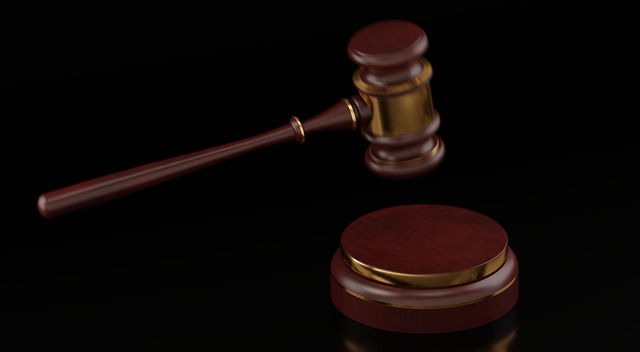Recent developments in criminal law, driven by advancements in digital forensics and landmark court decisions, have significantly reshaped legal landscapes. These changes balance public safety with individual freedoms, adapting to societal needs and technological advancements. Key rulings act as guiding beacons, interpreting complex statutes and addressing critical issues like search and seizure, due process, and capital punishment. Understanding these precedents is crucial for legal professionals to anticipate future implications and navigate the evolving criminal justice system effectively. Ongoing policy discussions further enhance fairness and public safety while aligning legal frameworks with contemporary values.
“Dive into the dynamic world of criminal law with this comprehensive guide. We explore recent rulings that shape legal landscapes, from addressing racial bias to adopting tech-driven investigations. Uncover how these decisions impact future cases and policies, while delving into emerging trends like predictive analytics and their implications. Get ready to navigate the ever-evolving landscape of criminal justice reform.”
- Recent Criminal Law Rulings and Their Impact
- – Overview of significant court decisions
- – Analysis of how these rulings affect future cases
- – Discussion on potential policy changes
Recent Criminal Law Rulings and Their Impact

Recent Criminal Law Rulings have significantly reshaped the legal landscape, with profound implications for both prosecutors and defenders. One notable development involves advancements in digital forensics, allowing investigators to extract more evidence from electronic devices, enhancing the accuracy and reliability of criminal investigations. This shift has been pivotal in solving complex cases, where digital trails were once elusive.
Moreover, landmark rulings on constitutional rights have reinforced protections for accused individuals, ensuring fair trials and due process. These decisions not only safeguard civil liberties but also prompt a more nuanced approach to criminal prosecution, emphasizing the importance of balancing public safety with individual freedoms. Such changes in criminal law reflect a dynamic legal system that continues to adapt to evolving societal needs and technological advancements.
– Overview of significant court decisions

In the dynamic landscape of criminal law, significant court decisions play a pivotal role in shaping legal principles and protecting individual rights. These rulings often serve as guiding stars for practitioners and citizens alike, interpreting complex statutes and constitutional provisions. Over time, landmark cases have not only clarified legal standards but also ensured fairness and justice within the criminal justice system. For instance, landmark decisions have addressed crucial issues such as search and seizure protocols, due process rights, and the boundaries of capital punishment, each contributing to a more balanced and equitable approach to criminal law.
Staying abreast of these court decisions is essential for understanding the evolving nature of criminal law. They provide insights into how judges interpret laws, ensuring that justice remains blind but not disconnected from societal needs. By scrutinizing these rulings, legal experts can anticipate potential implications on future cases, while citizens gain a deeper understanding of their rights and responsibilities under the criminal code. This continuous dialogue between the judiciary and society fosters a more dynamic and responsive criminal law framework.
– Analysis of how these rulings affect future cases

Recent rulings in the realm of criminal law have far-reaching implications for future cases, setting a precedent that could reshape legal strategies and outcomes. These decisions act as a compass, guiding judges and lawyers in navigating complex issues and ensuring fairness. For instance, the interpretation of constitutional rights in high-profile cases influences how evidence is handled and confessions are admissible, impacting not just the immediate case but also future investigations.
The analysis of these rulings reveals a nuanced approach to justice, where the court’s reasoning can become a blueprint for similar situations. This means that legal professionals can anticipate potential outcomes, adapt their arguments, and ultimately enhance the integrity of the criminal justice system. As new cases emerge, an understanding of these precedents will be crucial for advocates, ensuring they present robust defenses or build strong prosecution cases while adhering to the evolving landscape of criminal law.
– Discussion on potential policy changes

In the realm of criminal law, ongoing discussions about potential policy changes are crucial for adapting to evolving societal needs and addressing systemic issues. These changes often stem from a desire to enhance fairness, improve public safety, and reflect contemporary values. For instance, there’s a growing focus on restorative justice models that prioritize victim healing and community reintegration over punitive measures. Such an approach aims to break the cycle of crime by fostering empathy and accountability.
Additionally, debates around criminal law reform frequently touch on issues like decriminalization of certain offenses, alternative sentencing options, and the need for better mental health resources within the criminal justice system. These discussions are vital as they shape public perception and policy decisions, ultimately influencing how society responds to criminal behavior and rehabilitation. The goal is to create a more just and effective legal framework that balances punishment with rehabilitation while respecting human rights.
In conclusion, recent criminal law rulings have significantly shaped legal landscapes, offering clarity and new perspectives. These decisions not only resolve immediate cases but also set precedents for future litigation, prompting necessary policy considerations. Understanding these rulings is vital for both legal professionals and the public, as they collectively contribute to the evolution of criminal justice, ensuring fairness and accountability within our legal systems. This ongoing examination of criminal law developments empowers us to navigate an ever-changing legal environment.
